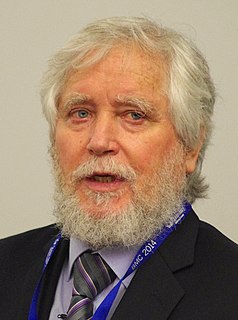A Quote by Andrew Wiles
I realized that anything to do with Fermat's Last Theorem generates too much interest.
Related Quotes
Carnal embrace is sexual congress, which is the insertion of the male genital organ into the female genital organ for purposes of procreation and pleasure. Fermat’s last theorem, by contrast, asserts that when x, y and z are whole numbers each raised to power of n, the sum of the first two can never equal the third when n is greater than 2.
I loved doing problems in school. I'd take them home and make up new ones of my own. But the best problem I ever found, I found in my local public library. I was just browsing through the section of math books and I found this one book, which was all about one particular problem - Fermat's Last Theorem.
Some mathematics problems look simple, and you try them for a year or so, and then you try them for a hundred years, and it turns out that they're extremely hard to solve. There's no reason why these problems shouldn't be easy, and yet they turn out to be extremely intricate. Fermat's Last Theorem is the most beautiful example of this.
If you have to prove a theorem, do not rush. First of all, understand fully what the theorem says, try to see clearly what it means. Then check the theorem; it could be false. Examine the consequences, verify as many particular instances as are needed to convince yourself of the truth. When you have satisfied yourself that the theorem is true, you can start proving it.
It is a matter for considerable regret that Fermat, who cultivated the theory of numbers with so much success, did not leave us with the proofs of the theorems he discovered. In truth, Messrs Euler and Lagrange, who have not disdained this kind of research, have proved most of these theorems, and have even substituted extensive theories for the isolated propositions of Fermat. But there are several proofs which have resisted their efforts.
Too much knowledge could be a bad thing. I was lead to the Szemerédi theorem by proving a result, about squares, that Euler had already proven, and I relied on an "obvious" fact, about arithmetical progressions, that was unproved at the time. But that lead me to try and prove that formerly unproved statement- about arithmetical progressions-and that ultimately lead to the Szemerédi Theorem.
Too many vacations that last too long, too many movies, too much TV, too much video game playing - too much undisciplined leisure time in which a person continually takes the course of least resistance gradually wastes a life. It ensures that a person's capacities stay dormant, that talents remain undeveloped, that the mind and spirit become lethargic and that the heart remains unfulfilled.

































